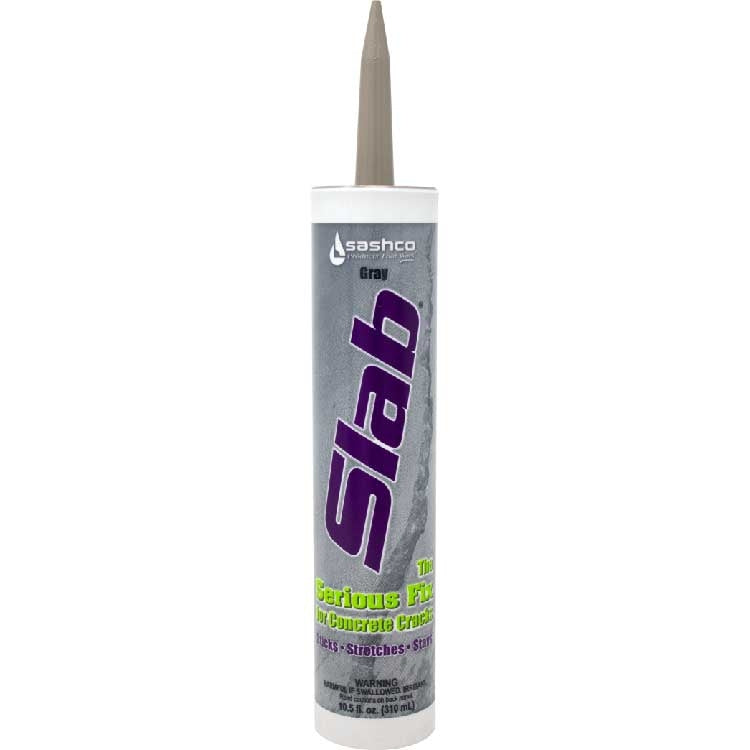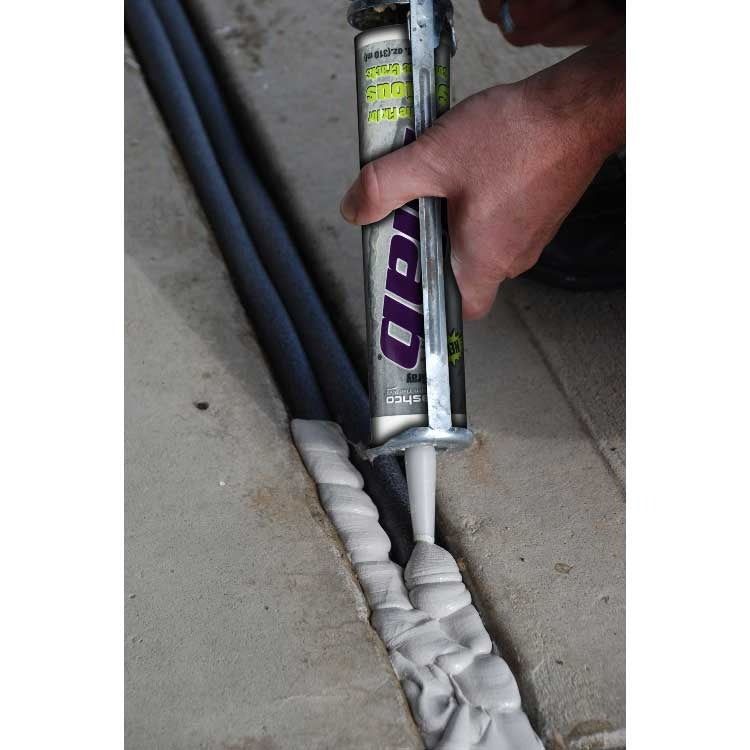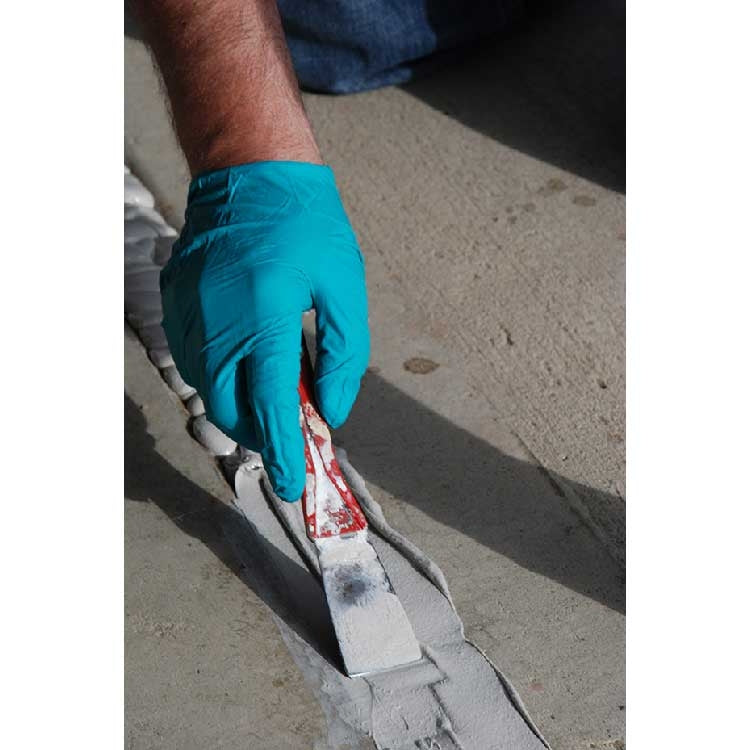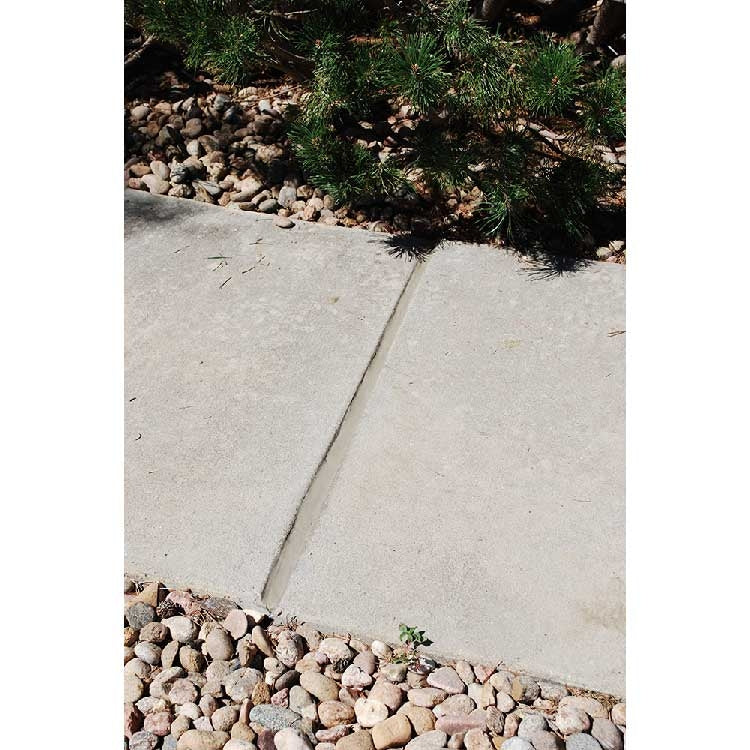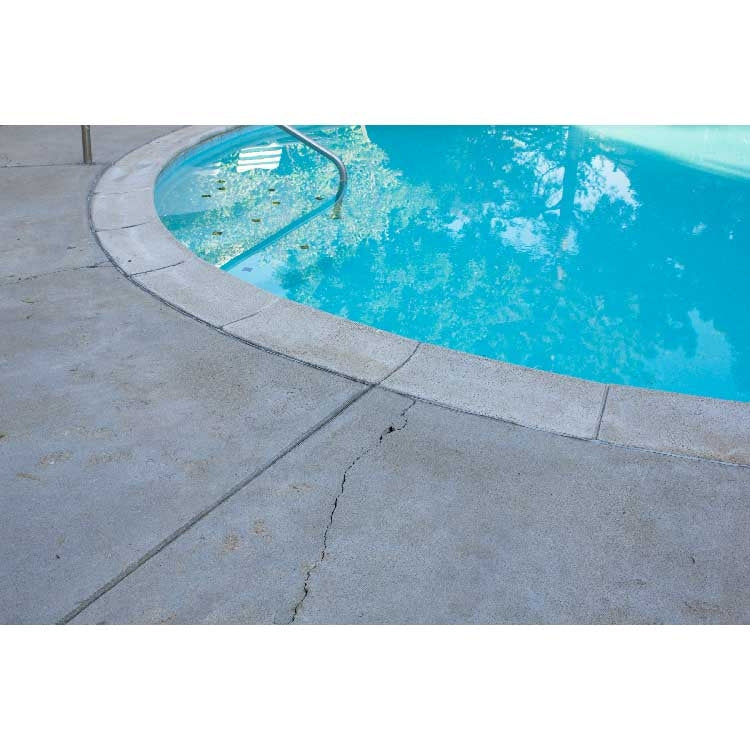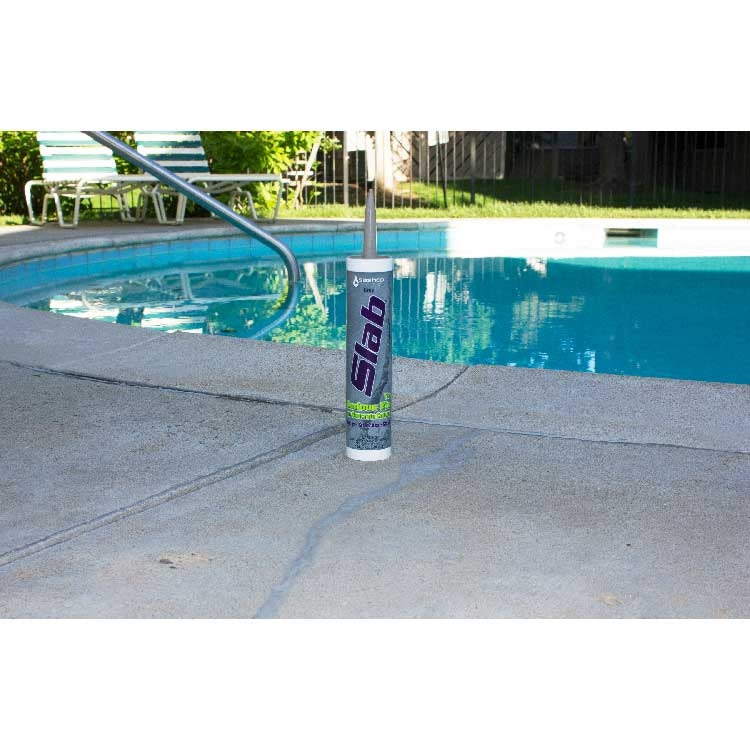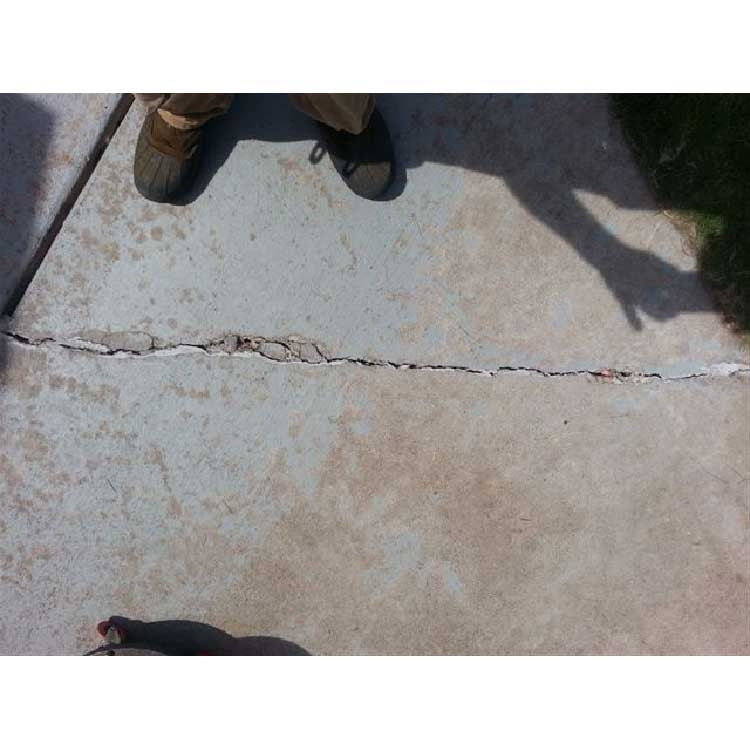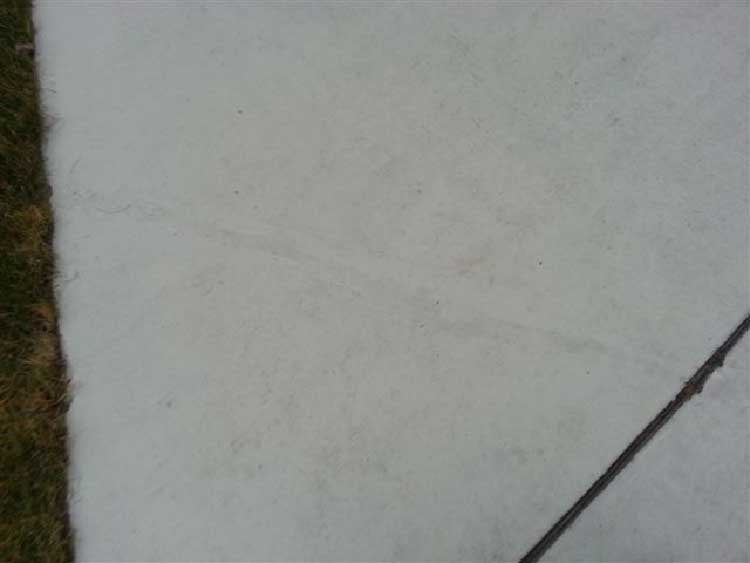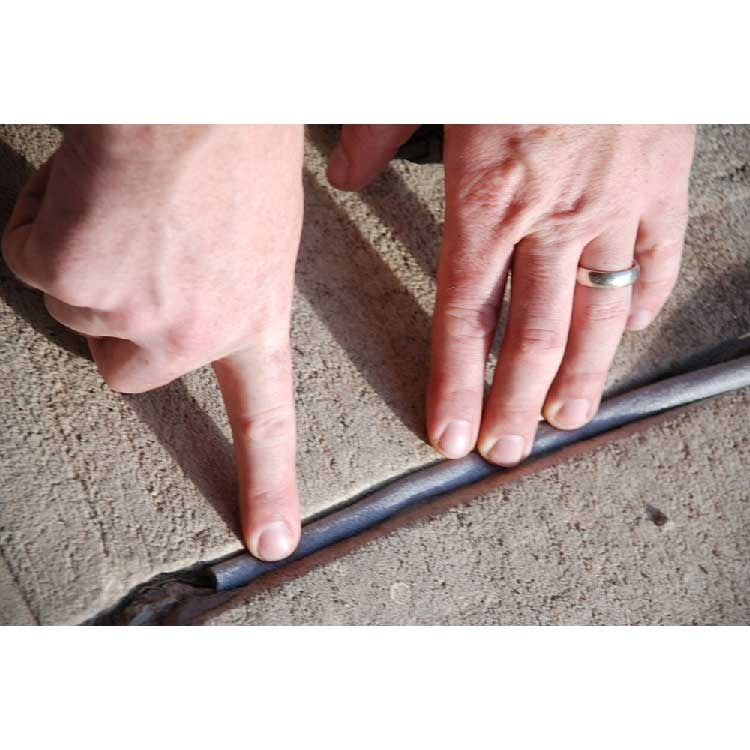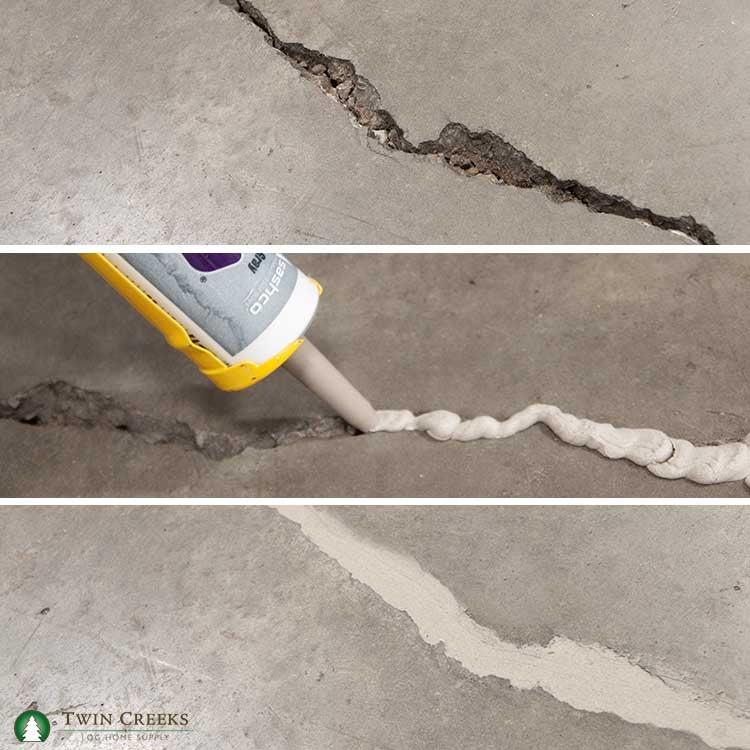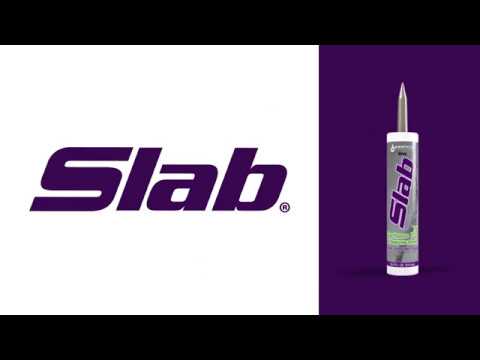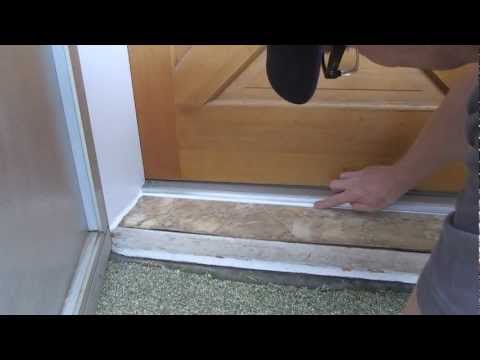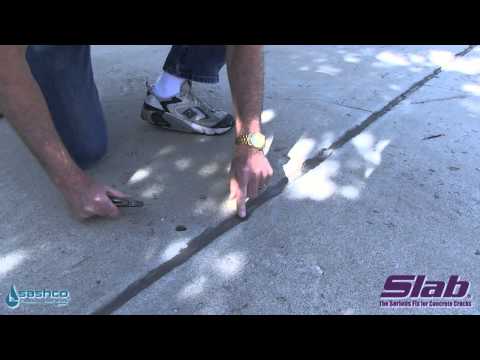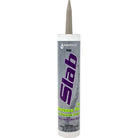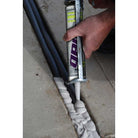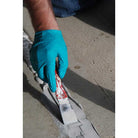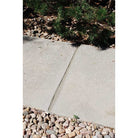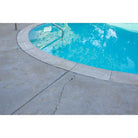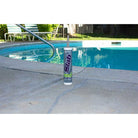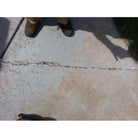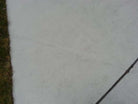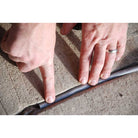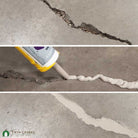Slab Concrete Crack Repair Caulk
Details
Slab® Concrete Crack Repair Caulk is a flexible water-based concrete repair sealant designed for permanent repairs. Slab is perfect for repairing large or small cracks in concrete, brick, or stone including: sidewalks, garages, sheds, driveways, patios and horizontal expansion joints. The elasticity of Slab allows it to move with your concrete due to changes in temperature, shifting soil, moisture and traffic to create a weatherproof seal.
Sashco Slab Concrete Crack Repair Caulk Features & Benefits
• Elastomeric with powerful adhesion—stretches but won't tear, crack or pull away and will not rip apart the substrate when joints expand.
• Its gray color blends well with concrete and stone to provide a seamless appearance.
• Eliminates the need for repeated repairs.
• Easy to apply, smooth and clean up with water.
• Freeze-thaw stable through 10 cycles.
• Full 10.5 oz. in every cartridge.
• Slab sticks to itself, making repairs easy.
• Stop-flow plunger.
Slab Concrete Crack Repair Caulk Compatible Surfaces:
• Asphalt
• Brick
• Mortar
• Concrete
• Stone
• Stucco
• EIFS
• Wood
• Cinder Block
How to Repair Cracks In Concrete Using Slab:
1. Gather Tools
You'll Need:
• Slab
• Backer Rod
• Drill-mounted brush or stiff bristled brush for cleaning out the crack.
• Caulk Gun
• Utility knife for opening the caulking cartridge.
• Putty knife or foam brush for tooling.
• Damp rags for clean-up.
2. Clean the Crack
In order to create the strongest bond possible between the caulk and material being repaired. Use the stiff bristled brush or drill-mounted brush to remove all loose debris.
3. Insert Backer Rod
Any crack that is deeper than 1/2" and wider than 1/4" needs to be filled with backer rod prior to being caulked to ensure both proper elasticity as well as an efficient amount of caulk.
4. Apply the Caulk
Apply the bead of caulk at least 1/4" thick but no more than 1/2" thick. This allows the caulk to stretch correctly.
5. Tool the Caulk
Use a damp foam brush, a putty knife, or your finger to create a smooth, uniform bead and ensure the caulk adhered to the sides of the joint properly.
6. Clean Up
With a damp cloth while the caulk is still wet, use soap and water to clean up excess caulk.
Slab Concrete Crack Repair Caulk Safety Data Sheet:
Slab Concrete Crack Repair Caulk Safety Data Sheet
Sashco Technical Support
If you have questions or issues regarding the Sashco line of products, Sashco Technical Support is available at 800-767-5656.
Reviews
Product Questions
Product Questions
-
What can I do to keep this from leaving any residue on the edges of the crack after I'm done?
The best we to present any unwanted residue is to clean excess with a damp cloth as you work. For a more uniform result, the sides of the joint may be taped using painter's tape.
-
What's the best distance to cover when filling in a crack?
It is best to tool the product as soon as possible after application. If you're working alone, we've found that around a five foot span is a good distance to cover before you start tooling. If you have help, have your help follow behind you and tool the product as you apply it. Also, be aware of how quick the product is building a film or losing its tack during your project to prevent any unwanted results.
-
Is this product available in other colors other than gray?
Yes, gray is the only color available for Slab.
-
How much area will one tube fill?
One 10.5 ounce cartridge of Slab will seal a joint approximately 26 lineal feet long and 1/4" wide. The wider the joint is, the shorter the distance each cartridge will cover. For example, one cartridge will seal a joint approximately 13 lineal feet long and 1/2" long.
| Item | |
|---|---|
Size |
Box (12) 10.5oz. Tubes
|
Color |
Gray
|
MPN |
|
Weight |
12.0 lb
|

